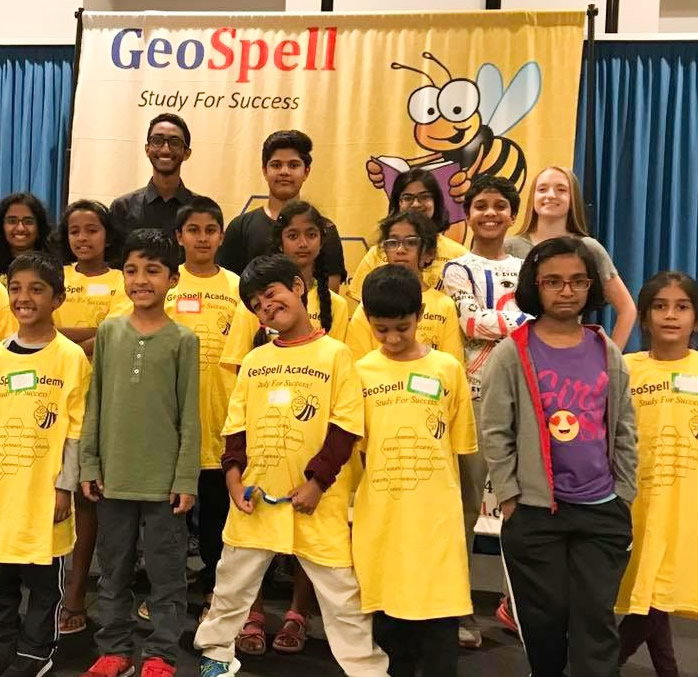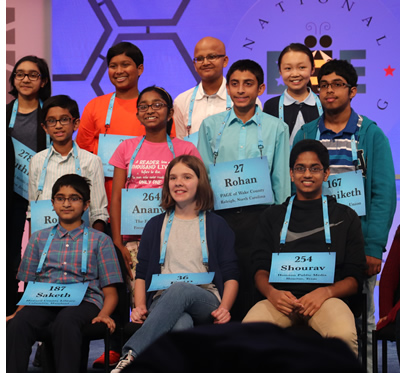Spelling Bee BOOTCAMP coming in August! Click HERE to find out more and register
Topic Archives: Etymologies

Sep 6, 2017, 6:17 AM
This past weekend, I had the opportunity to attend and volunteer at the Geospell Academic Olympiad in Dallas, Texas. Hosted by Geospell’s founder Vijay Reddy, the Olympiad was a two-day event with ten different subjects in which students could compete: math, science, geography, spelling, vocabulary, logical reasoning, technology, history, and general knowledge. The highlight of all these was, of course, the spelling bee

Aug 24, 2017, 11:32 PM
New Latin is a complex etymology with a rich history and a deceptive name that often confuses spellers. Of the 211 words given in this year’s SCRIPPS National Spelling Bee finals, 84 (40%) were of Latin and/or Greek origin. Of those 84 words, 30 were formally classified as New Latin. That’s just over ⅓ of all words of Greco-Roman origin asked in the bee, so clearly New Latin has a profound presence in our modern spelling bees. It is growing in frequency and it is important for spellers to grasp its patterns and rules.

Aug 21, 2017, 8:37 PM
2017 was one of the toughest years the spelling bee world has seen so far. Competition was fierce, as many spellers who had been rising through the ranks had reached their final year of eligibility, and all looked to seize the title of national champion. With the introduction of the tiebreaker test at the SCRIPPS National Spelling Bee, the stakes rose even higher.
Aug 11, 2017, 9:30 PM
Eponyms have always spelled trouble for spelling bee participants everywhere. The definition of an eponym is a word based on a proper name, often a person’s name or a place name. Because these words come from names, and names have no set rules or patterns that govern their spelling, spellers are often vexed when they receive an eponym on stage. Often times, eponymous words are near impossible to figure out if a speller hasn’t heard the word or the name it stems from before; they’re tricky and unpredictable. (click for full article)
